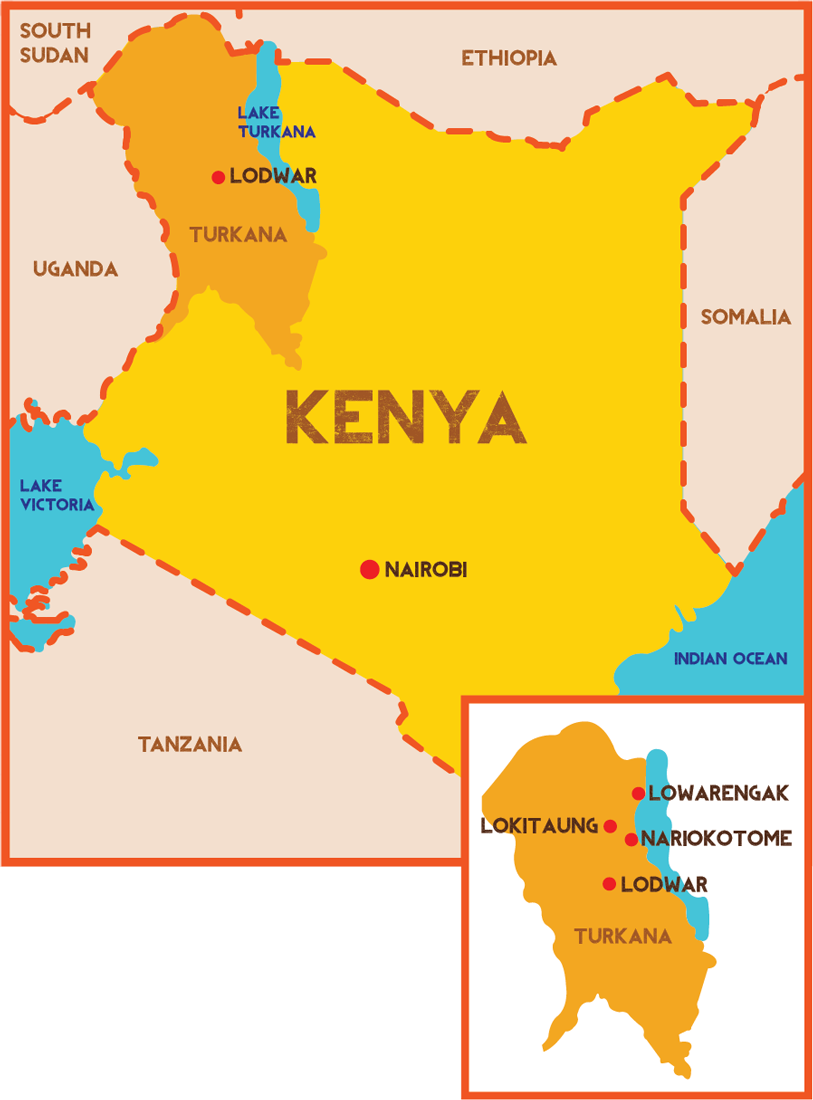Turkana is a region in the north west of Kenya situated on the western shore of a large lake known as Lake Turkana.
The first Catholic missionaries came to Turkana to help with famine relief and then established the diocese of Lodwar in 1978. It was during this time that another famine struck the area, lasting from 1977-1980 and killing 30% of children and 70% of cattle. Foreign aid was sent to Turkana from some NGO’s as well as some religious organisations, including our Parish. We have been committed to Turkana ever since.
Life in Turkana is diffcult due to the climate and landscape, meaning that food and water are often in short supply. Development work, mostly set up by the missionaries, aimed to help the people in the region become more prosperous. Agricultural settlements have been built, although suitable areas for this are limited by the barrenness of the soil and problems with irrigation. Such settlements are a good means of income for the people of Turkana, as well as being an essential source of food, since over fishing in Lake Turkana has meant that the only food now comes from livestock and crops.
Water in the area has to be pumped out of the ground by solar powered pumps. 189 of these ‘water holes’ have now been set up, greatly increasing the availability of water, although people often still have to walk great distances to the nearest ‘water hole’. Water is still the major need in Turkana.
There have also been a number of initiatives to give women the skills to earn money, through the making of goods such as baskets.
